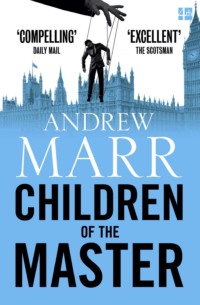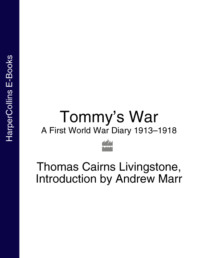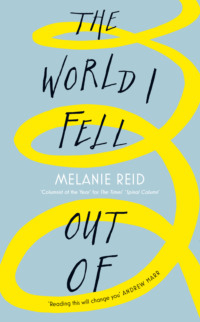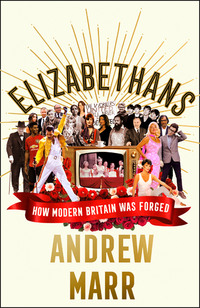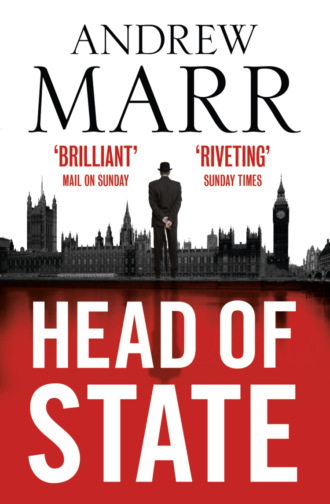
Полная версия
Head of State: The Bestselling Brexit Thriller

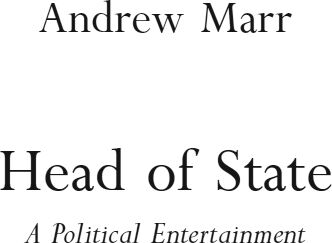

Copyright
Fourth Estate
An imprint of HarperCollinsPublishers Ltd
1 London Bridge Street
London SE1 9GF
www.4thestate.co.uk
First published in Great Britain by Fourth Estate in 2014
Copyright © Andrew Marr and the Chadlington Consultancy Ltd. 2014
The right of Andrew Marr and the Chadlington Consultancy Ltd. to be identified as the authors of this work has been asserted by them in accordance with the Copyright, Design and Patents Act 1988
The characters, businesses and events portrayed in this book are entirely fictional. Any resemblance between them and real individuals, businesses or events is coincidental and should not be inferred.
A catalogue record for this book is available from the British Library.
All rights reserved under International and Pan-American Copyright Conventions. By payment of the required fees, you have been granted the non-exclusive, non-transferable right to access and read the text of this e-book on screen. No part of this text may be reproduced, transmitted, down-loaded, decompiled, reverse engineered, or stored in or introduced into any information storage and retrieval system, in any form or by any means, whether electronic or mechanical, now known or hereinafter invented, without the express written permission of HarperCollins.
Source ISBN: 9780007591923
Ebook Edition © 2014 ISBN: 9780007591930
Version: 2015-06-02
From the reviews of Head of State:
‘In Marr’s novel, full-blown farce and well-salted insider gossip edge into a sharper, if not wholly serious, look around the darker corners of the UK state. The Machiavellian melodrama of House of Cards veers into The Thick of It, and then off into the shadows where fixers out of John Le Carré lurk … [An] energetic romp … bursting with mischief, zest and coded gossip’
Independent
‘There are the flowing passages and telling phrases that one would expect from such an accomplished writer … the jokes are excellent and the inner workings of government (and, I’m sure, the media) are described with complete accuracy’
Guardian
‘Andrew Marr is a marvel … what makes Head of State worth reading is that it is Marr unbuttoned … witty and wicked’
New Statesman
‘A darkly comic Westminster thriller with lashings of corruption, murder and sex’
Daily Mail
‘The characterisation is excellent … There are few shrewder observers of Westminster and Fleet Street than Marr, and his deft touch is apparent throughout’
Sunday Telegraph
Dedication
For Harry Cameron Marr
Author’s Note
This book came about in an unusual way. I had long wanted to write a political satire that would help to lift the lid on how aspects of government and the media really worked in a way that’s not possible in conventional journalism. Meanwhile Peter Chadlington, a member of the distinguished political Gummer family, had long had a notion for the plot of a novel centred on an explosive secret at the very heart of government. We were introduced through my agent, Ed Victor, and Peter described his idea to me. We subsequently met, and talked through the possibilities and tone of the book. I then wrote the novel, which was expertly edited first by Philippa Harrison, a legend in the trade, and then at Fourth Estate by Robert Lacey, another.
So I owe Lord Chadlington an enormous debt as the originator of the idea on which the whole plot of the novel revolves. He has also been kind in introducing me to certain political and financial figures who have helped ensure that the detail is as accurate as it’s possible to be. However, it’s fair to say that, left to himself, Peter would certainly have written a very different book. He may not approve of or agree with everything which has emerged; and he cannot be held in any way responsible for my private feuds, jokes and idiosyncrasies. Some of the characters and stories in the novel are derived directly from my thirty years as a political reporter, though of course almost everything here is fictional.
Andrew Marr
April 2014
Foreword
For the last fifty years, two of my abiding passions have been politics and the art of political persuasion. The basic idea behind this novel has been in my mind for much of that time. Andrew Marr has singlehandedly turned it into a political entertainment with verve and satire. Without him it would still just be swirling about in my head.
Some may read the following pages and declare the story too fanciful – ‘It could never happen.’ But we should remember that much of what we take today as ‘normal’ political behaviour would have been considered unthinkable fifty – or even twenty – years ago. Today, almost anything seems politically possible.
As Andrew has mentioned, the writing of this novel has been greatly helped by the advice of politicians and financiers, and also by access to several institutions – including Number 10 Downing Street – to ensure that the settings are as accurate as possible.
Peter Chadlington
April 2014
Contents
Cover
Title Page
Copyright
Praise
Dedication
Author’s Note
Foreword
1. Monday, 18 September: Referendum Day Minus Three
Cock of the Walk
Ken Cooper, Upset
Ken Cooper’s World
How History is Made
Under a Rebel Flag
2. Saturday, 16 September: Referendum Day Minus Five
Fathers and Sons
Mothers and Daughters
Sex and Marriage
Library Game
3. Monday, 18 September: Referendum Day Minus Three
Who is Alois Haydn?
The Dither Fund
Professional Logistical Services
The Romance of Fleet Street
Conversation Piece
Constitutional Monarchy
In the Little Brick Terrace
A Club Lunch
4. Friday, 15 September: Referendum Day Minus Six
A Queer Turn of Events
‘He Can’t Do This’
The Gamble
Dirty Work
The Decapitation Strategy
An Awfully Big Adventure
The Great Escape
5. Saturday, 16 September: Referendum Day Minus Five
The Saturday Delivery
A Little Politics
6. Sunday, 17 September: Referendum Day Minus Four
Rosy-Fingered Dawn
7. Monday, 18 September: Referendum Day Minus Three
The Voice of the Nation
8. Tuesday, 19 September: Referendum Day Minus Two
The Campaign
A Coffee Break
Syntax and Sincerity
Double-Cross
Alois Haydn Can Fly
The Quarry
The Chase is On
Scrambled Eggs at the Wolseley
On the Road
The Tea Game
9. Saturday, 16 September: Referendum Day Minus Five
Rewind …
10. Sunday, 17 September: Referendum Day Minus Four
Boys’ Stories
11. Tuesday, 19 September: Referendum Day Minus Two
Virtual Reality
Reptiles
Old Flames, Flickering
On the Verge
Over to Olivia
Enter, a Bear
Jen Blows It
Speaking Plainly
12. Wednesday, 20 September: Referendum Day Minus One
Phoebus Awakes: A Pageant
Death in the Morning?
Turbulence
The Second Message
A Dénouement
Female Wrestling
But Where is Ned?
Marshmalice
It Isn’t Over
13. Thursday, 21 September: Referendum Day
The Rise of Lord Croaker
The Nation Decides
14. Friday, 22 September: Referendum Day Plus One
The Birth of a Free Nation?
Epilogue: Monday, 9 October
About the Author
Also by Andrew Marr
About the Publisher
The people of Britain will vote on a definitive ‘in or out’ question on the country’s membership of the European Union in a referendum to be held on Thursday, 21 September, the prime minister told the House of Commons yesterday.
‘This will settle the question for a generation to come, and fix the course of this great nation for our children and our grandchildren,’ he told the cheering backbenches of the ‘grand coalition’.
The announcement follows many delays and disappointments for those campaigning for such a referendum, a matter which the PM said could not be delayed ‘for more than a few months, for all our sakes’.
The prime minister, who was in Hanover last week to put the final touches to his agreement with the German chancellor for a looser, more market-friendly EU, assured the Commons that he would be campaigning unequivocally for a ‘Yes’ vote.
Leading the ‘No’ campaign from the opposition benches, Mrs Olivia Kite, who was until recently serving under the PM as home secretary, promised a ‘no holds barred, passionate, honest and patriotic campaign’ to persuade Britain finally to sever its ties with what she called the ‘soft, corrupting dictatorship’ of Brussels.
Polling for this newspaper suggests a close vote in three months’ time, with the character and leadership abilities of the prime minister a major factor for swing voters.
National Courier , London, Thursday, 22 June 2017
Cock of the Walk
A dirty wind gusted. There were just three days to go before the referendum that would settle Britain’s destiny. The Golden Cockerel swung proudly from the balcony on the top floor of one of the City of London’s most repellent buildings. Even among the swollen glass spikes, cheese graters and vegetables crowding the capital’s horizon in 2017, this pastrami-and-lemon-coloured confection from the boom of the 1980s stood out – vile colours, ill-judged proportions, cheap materials. Architecture is one of the most certain measures of cultural and social decline. Inside the abomination, the Cockerel restaurant offered a cold-eyed English catering executive’s idea of French peasant cooking. In recent years the ‘Cock’ had gained a certain notoriety, because its outside smoking terrace had become popular with City suicides.
A South Asian accountant, bullied at work, had thrown herself to her death after dinner. A City trader whose losses were about to be exposed had leapt the eight floors after a couple of Cock of the Walk martinis. The almost famous and thoroughly cuckolded president of the Society of Costermongers had made a witty speech to a gathering of his best friends, then vaulted over the guardrail into the traffic below, bouncing off the top of a passing bus before experiencing his last convulsions under the wheels of a kitchen-delivery lorry.
This Monday morning there lay, foetally curled in the grey half-light on the pavement below the Cockerel, the young constable’s first corpse. She took in a dark-blue jacket of a Portuguese cut, a pair of German designer jeans pulled down around his ankles, scuffed but new-looking English brogues, arranged at unlikely angles; and finally a mop of dark, curling hair nestling in a half-dried archipelago of blood. This was a youngish, once-handsome man. There’d be a worried girl somewhere this morning. Or maybe a boy. As the wailing police cars screeched to a halt and disgorged more officers, who pushed aside the ghouls and surrounded the body with tape, and then a plastic tent, the constable stared up at the jutting metal balcony and the gaudy metal bird, squeaking nastily in the wind.
Odd, she thought.
Inside the tent, green-uniformed ambulancemen were bending over the body. But you only needed to glance at the twisted figure to know that there was nothing to be done. In the dark, the body could have been a rough sleeper, ignored for hours.
She walked over and rattled the door of the Golden Cockerel, which led to the lobby, which led to the lift. It was locked. Everything was locked. Too early. Even the cleaners wouldn’t be in for an hour. So how had this happened? It was one thing for a drunken, despairing person to jump late at night, or even in the middle of a meal; but who would find their way into the Cockerel early on a Monday morning, and then jump? There were easier places – the bridges over the Thames, for one thing – all around.
It didn’t make sense.
Three hours later, as the body was swaying slightly, tightly tied down on a gurney in a fast-moving van, a mobile phone began ringing in the dead man’s pocket.
Ken Cooper, Upset
At the other end of the line was a heavily-built man sitting in the back of a chauffeured Mercedes which was stuck in traffic in central London. He was on his way to the offices of one of Britain’s once-great newspapers, the National Courier.
Ken Cooper hated being in the back seat. He hated the taste in his mouth of a wolfed breakfast and the smell of warm leather. He hated the nauseous feeling caused by reading all those newspapers while the driver listened to some funny-moronic DJ doing a funny-moronic phone-in with his – Ken’s – own readers. He hated the thought of the ill-tempered meeting with the marketing department weasels and circulation ferrets that would begin his office day.
How would it go?
‘Kevin’s done some more focus-group research, boss. There are too many older faces in the paper. We need good-looking young people. We need less politics. I’ve done some work, and you know our ideal story? Tasty rich kids being mugged for their Rolexes outside Annabel’s. We need more muggings and more tasty rich kids.’
Reptiles. Water rats. But you could hardly blame them. All the papers were the same these days, run by scuttling, nervous children. Ken was coming to hate the trade he’d always loved.
He hated the clever rat-run route his driver had chosen, which had led straight into this hunched chaos, a clogged artery of barely moving German engineering. He hated the prospect of lunch with the proprietor’s son, an Eton-educated stoat who affected purple tweeds and whose girlfriend was on the cover of half the colour supplements most weekends. He didn’t mind the proprietor himself, a rough, cynical man who had made his money in property in the sixties. But he hated the son.
And he hated his Mercedes. He’d have been faster on a bike. He’d have been faster hopping on one foot, probably. Never in human history had so much engineering been expended to transport so few people such short distances so slowly. But try getting that in the paper.
Yet a car and driver was one of the last perks left for national newspaper editors, as their circulations shrivelled and their once-mighty legions of reporters were reduced to hysterical little platoons of underpaid dimwits. So he used the journey every morning to read his own paper, savagely underlining mistakes and striking through bad headlines, then scanning the opposition and drawing up lists of stories missed, or angles his guys had failed to see. Then he’d check Witter, jot down a few ideas for the morning news conference, and make some calls to cheer himself up.
At least in the office there was order and hierarchy and clear lines of command – Ken often reflected that had domestic life been as well-run as office life, the world generally would be a lot happier and better-ordered. At work, people knew their place, and could be rude or amusing to one another without offence being taken. Behind the front door of his house, the rules had been mysteriously different. His now ex-wife’s flaming temper had matched his own, and on the few occasions when things had come to blows, she was faster with her fists too.
This morning his first call was to the news editor. Some good news, or at least real news. Yesterday afternoon a body had washed up on the embankment of the Thames, on a sliver of mud just below Battersea Park. The local nick, which was in the pay of his crime reporters, had tipped the Courier off. Christmas envelopes were the gifts that kept on giving.
As described by the police, the body was that of a heavily-built, naked white male in his late fifties or early sixties. The head and hands had been cut off. A Russian mafia killing? But the police had said that the only clue to the deceased’s identity was a single Royal Navy tattoo. So whoever he was, he had been English.
The news editor had given the job to the paper’s last proper investigative reporter, Lucien McBryde. But now Ken Cooper couldn’t get the arrogant little sod to pick up his bloody phone.
McBryde, he reflected, had been behaving oddly in the last couple of days. He claimed to be closing in on a sensational political story. And certainly, these were sensational political times. The referendum was slicing the country down the middle. The British had always been a people slow to feel political enthusiasm – one of the great secrets of their national survival. But now, families were dividing over supper tables, and offices were riven by arguments about a subject bigger than football or waxing. Ken’s car had already passed a dozen hoardings featuring the wrinkled, boxer’s face of the prime minister – ‘Your choice, your future. Vote Clever’ – and as many, if not more, from the anti-Europe campaign, now led by the former home secretary Olivia Kite, who with her red hair, pale face and vivid crimson lips looked increasingly like Elizabeth I, or at least Cate Blanchett – ‘Your country, your choice. Give your children the gift of freedom.’
But if Lucien McBryde had something to add to the earsplitting arguments over Britain’s future, he hadn’t shared it with the paper’s political editor, or with Ken himself. He’d just said he was on to something that would ‘change everything’. He had seemed even nervier and more excitable than usual, though that was probably down to the marching powder. He had also recently broken up with his girlfriend.
Whatever McBryde was up to, he wasn’t answering his phone. Ken groaned, decided not to leave a voicemail message, and turned his phone to silent. Perhaps there wasn’t really a story at all, and the whole thing was just an excuse. It wouldn’t be the first time. Ken was glad that McBryde had been given the headless Battersea corpse. It would settle him down. Calm him. Give him something solid to get his teeth into.
But still, it was bloody rude of him not to answer his phone. It was past 9 o’clock. How dare the little badger not pick up?
Ken Cooper’s World
The trainee was an experiment. The managing editor of the National Courier considered the trainee perhaps the crowning achievement of his career.
This morning, the trainee’s job was to sit by the window that looked onto the street outside the National Courier and watch until he saw the silver Mercedes containing the editor. At that point he had to go – ‘quickly, but not running’ – to the managing editor’s office and tell him. In the roughly one hundred seconds between the car being spotted and Ken Cooper shouldering his way through the revolving doors, the managing editor was able to summon the foreign editor, the business editor, the features editor and the sports editor. They would be waiting in the foyer with pointlessly ingratiating smiles as Cooper made his way to the lift.
‘Just under the million. Eight per cent down on last year, and ten per cent since the spring promotion,’ said the managing editor.
‘Fuck off. We’ve cut the price in the Midlands, and we’re still going down the toilet? The Telegraph’s only seven per cent down; Guardian, seven per cent down. Thought about hiring some journalists?’
The managing editor did not need to hire any journalists. But he did not tell Ken Cooper that.
The foreign editor was next in line. ‘We’ve completely ignored the Malaysian typhoon, boss. Twenty thousand dead, and not even a line on the front.’
‘Fuck off. That twenty thousand included a rich couple from Chelsea and their son who’d just started at Harrow. The Daily Mail had it. We didn’t. Your fault. Not mine.’
Then the business editor: ‘A cracking story from Sir Solomon Dundas, boss. They’re going to split up that Scottish bank after all.’
‘Fuck off. Dundas is a self-promoting wanker. His last tip was crap. I don’t want another story with his sticky fingers on it in this newspaper, ever.’
The features editor was offering six of the best chocolate recipes, an article about why Bloody Marys were back in vogue, and an interview with Mia Farrow’s son. Ken told him to fuck off and come back with something fucking interesting.
The sports editor, a lean, gnarled man with a bald head and rimless glasses, got him just before the lift doors opened. ‘Boss?’
‘Yes?’ said Ken.
‘Nothing really … Just – fuck off, boss.’
Ken laughed. He was beginning to feel better.
Exactly the same performance took place every morning. These days there was less tension than usual, because there was only one story in town. Everybody at the National Courier knew that the front page would be referendum, referendum, referendum. The cartoon would be referendum. The comment pages would contain referendum yes and referendum no. The editorial would be referendum maybe.
There were still twenty-five minutes before the morning editorial conference. Time enough for the foreign editor to tell his key staff to fuck off and bring him something interesting; for the business editor to tell his banking correspondent to fuck off and stop depending on the same old sources; for the features editor to tell everyone who worked for him that they were fucking useless; and for the sports editor to smoke three cigarettes. In this way, a great newspaper was coming together.
Nobody told the trainee to fuck off. Nobody even knew the trainee’s name. He was a well-dressed young man in his early twenties, with beautifully cut hair, neat nails and a degree in journalism studies. He possessed, as all journalists must, a plausible manner, a little literary ability and a good deal of rat-like cunning. Despite these advantages, he was known only as ‘oi’. When he protested about this to the managing editor, the managing editor quite truthfully explained that his name did not matter, since nobody would ever need to know it. Like him, most of the younger journalists at the Courier were work-experience trainees who lived at home with their parents in Ealing, Primrose Hill or Highgate. Because the paper was prestigious and jobs in journalism were almost impossible to find, none of them was actually being paid. Everybody benefited from this arrangement. Their parents could boast to their friends about their children’s prestigious jobs. The paper got a steady supply of free labour. And the trainees quite enjoyed themselves. Occasionally the managing editor allowed himself to think of the many thousands of bright young people from poorer families who would never get the chance to work in journalism – but not for too long, because he knew that the current system made perfect economic sense.


